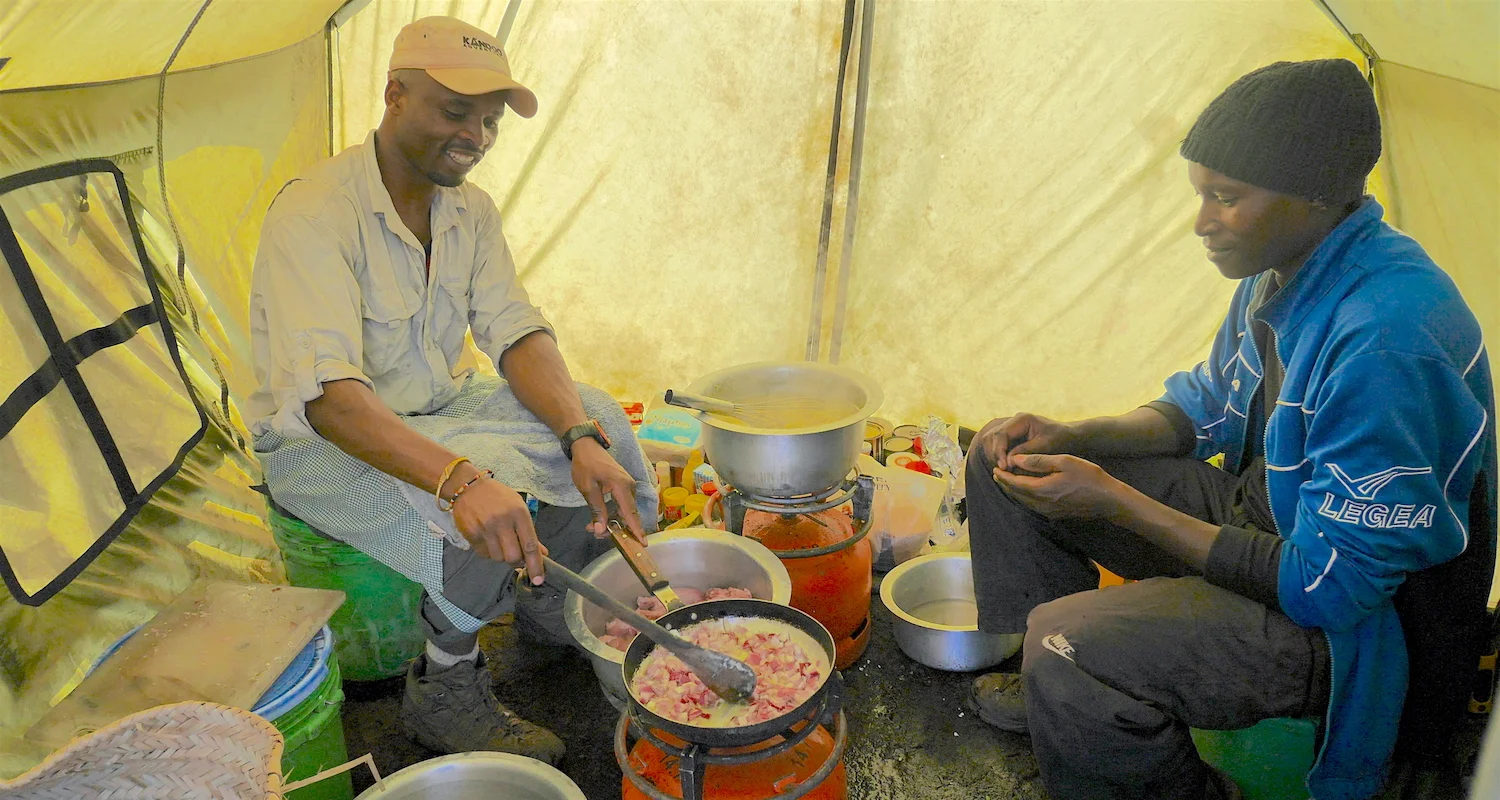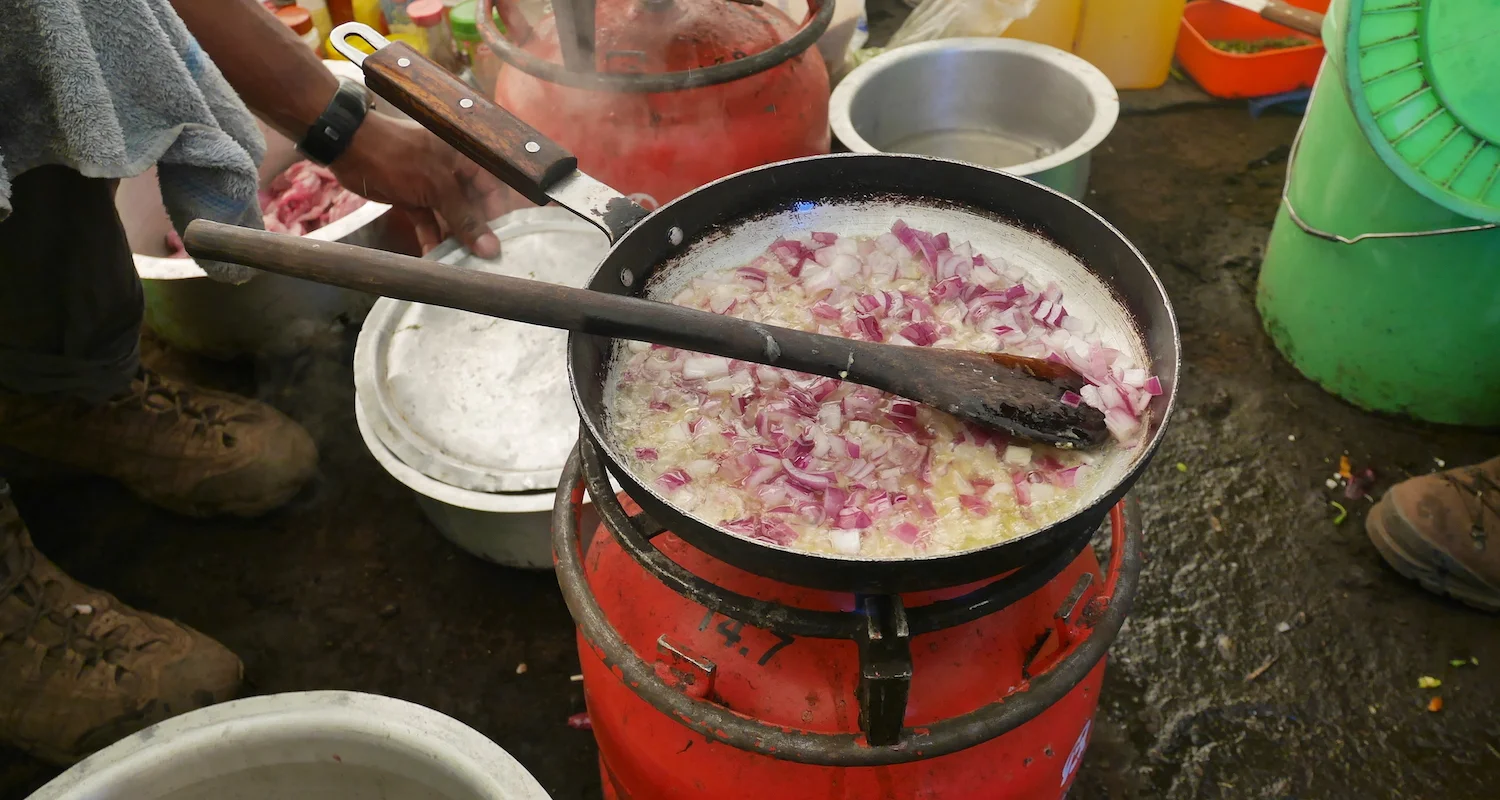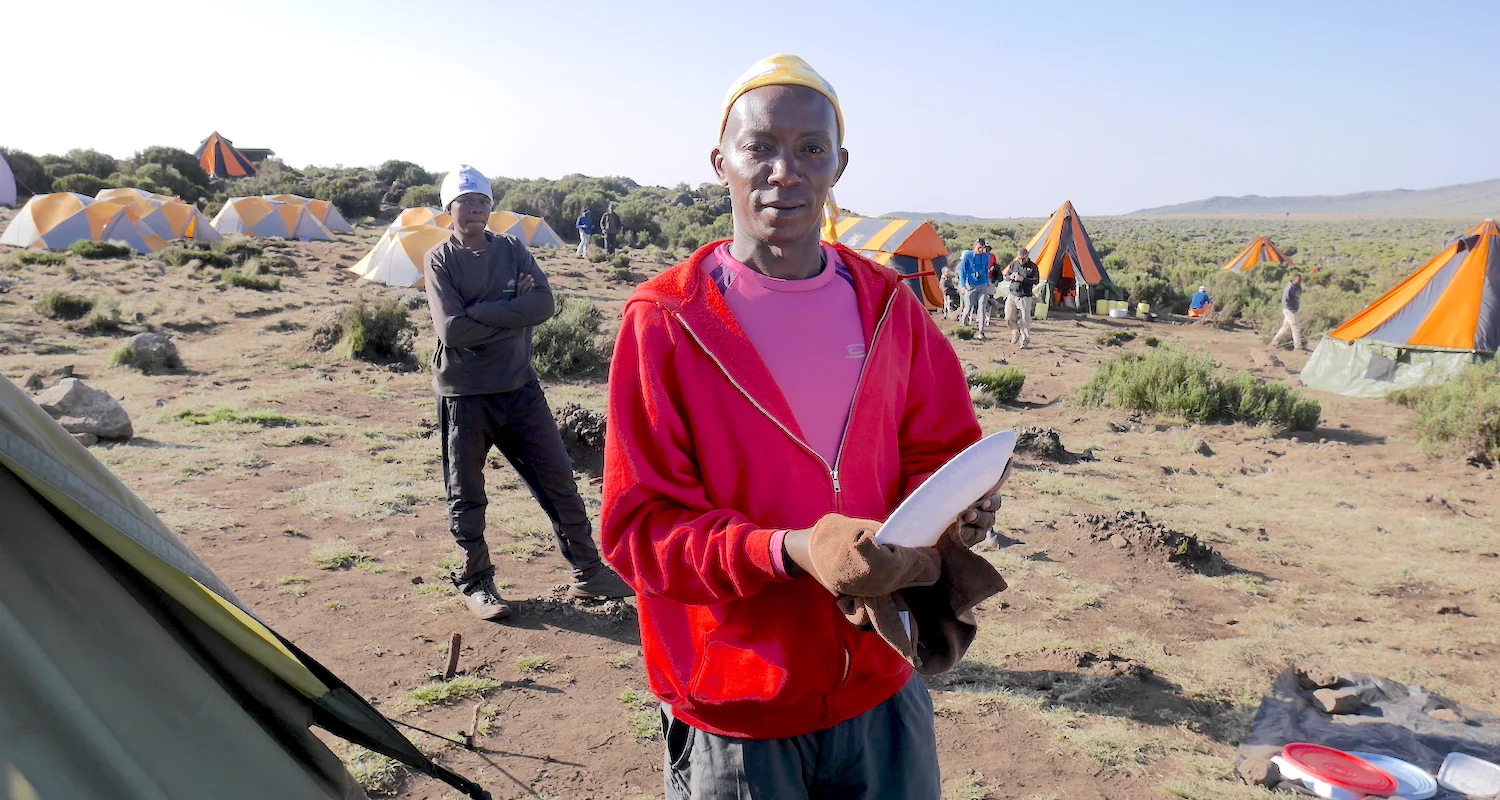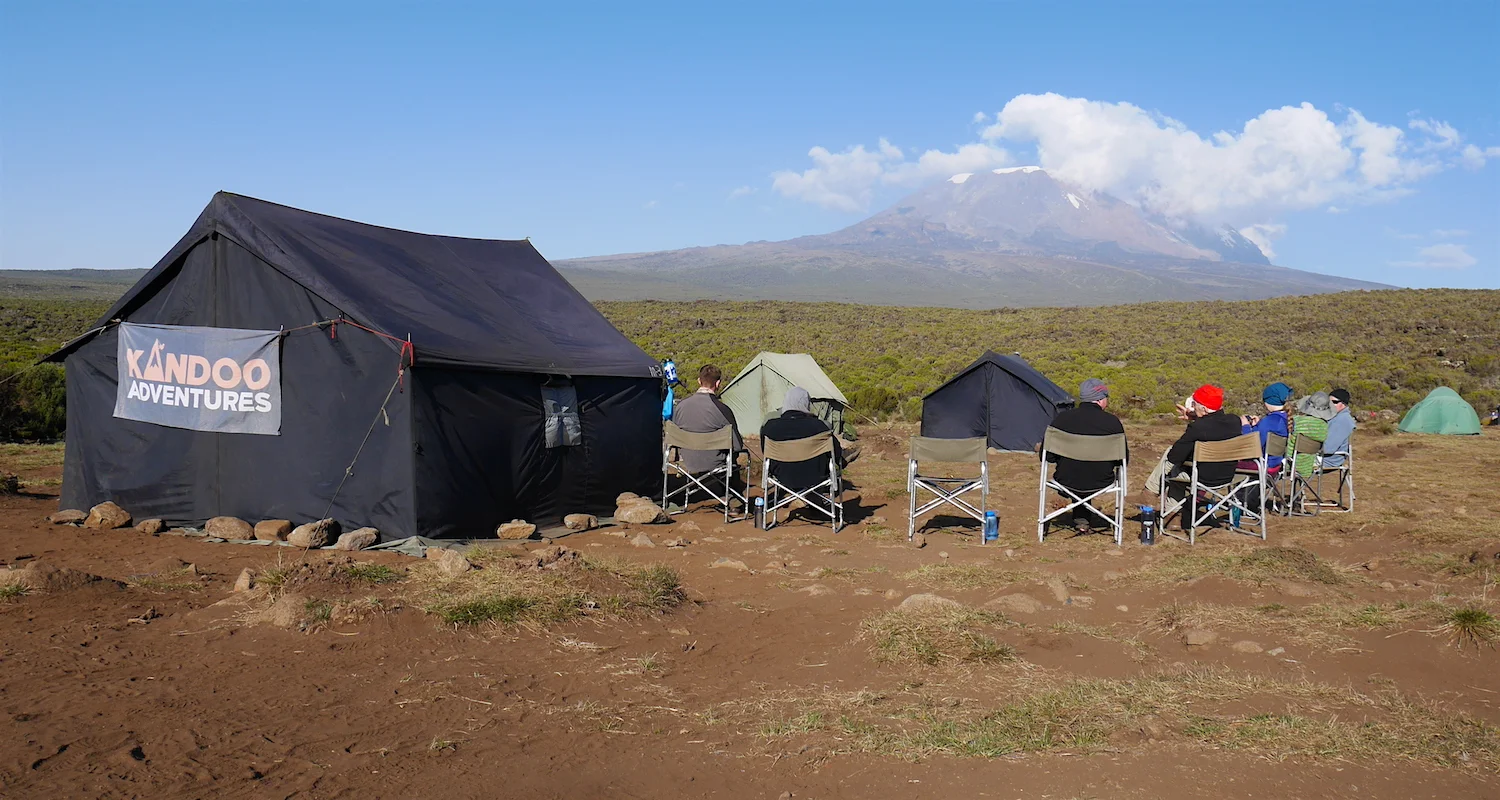Ok, I didn't expect this kind of luxury on the mountain. I'll get that out front.
Our line of trekkers came down the final slope of the afternoon and into Shira 1 Camp. The porters had arrived ahead of us and had pitched the nylon village on the crater floor. We stopped at the TANAPA ranger station and signed in. Afterwards, Tommy and I found our tent and unloaded. Dennis was there to help as needed. We had time to clean up and rest before dinner. A plastic bowl of warm water was presented to me as well as a squirt of liquid soap. Our boots were collected to be cleaned.
It was downright embarrassing.
White-necked ravens (Corvus albicollis) are the scavengers of the camps of Kilimanjaro. You can find them outside nearly every mess tent or kitchen.
After a ritual dabbing, I changed into some dry clothes and followed my nose to the kitchen tent. Outside a white-necked raven awaited handouts. Inside, I found Paul Aloyce Minja. He was stocky fellow, muscular, and the veteran of many climb seasons. His feet were glued to a muddy floor. He was busy with something delicious in metal pans. I knew immediately that this was a man I needed to befriend.
Paul and his assistant prepare dinner in the kitchen tent.
I introduced myself.
Paul asked me where I was from. His accent was African but his English was perfect.
"Tennessee." I answered.
"And you?" There was a pause. "Moshi?" I suggested.
"No." Paul answered with a straight face. "Canada."
"Really?" I was thunderstruck. "Where in Canada?"
He stirred the onions without looking at me. In a low voice he whispered, "The CIA."
My eyes must have widened revealing a mix of confusion and surprise. There was more pause.
Pearly whites appeared behind an enormous grin. "The Cooking Institute of America!" Paul looked up at me. "The CIA! Haa!"
He raised his arm and we high fived. This was a good start, I thought!
Paul sautées onions on the propane stove. The floor in the kitchen is intentionally muddied to keep down the dust.
We chatted. He worked. His stove was a burner mounted on a steel canister of propane. I pitied the man who carried that up here. On the stove were onions bubbling in butter. At his feet was an aluminum bowl of raw chicken. More vegetables were being chopped by Paul's assistant.
"It is difficult to cook at this altitude," he offered. I could only imagine. Paul had to cook for 40 people while sitting on a plastic bucket at elevations ranging from 12,000 to 15,000 feet. All supplies--including water, at times--had to be ported in.
I pressed him for one example of the difficulty.
He answered my question with a question. "At home, if you are making pasta, how long must you boil it?"
I confessed. "I don't know. I've never made pasta in my life."
He didn't look up. Didn't care, I suppose. He continued. "In Moshi, maybe five minutes. But up here, maybe 30 minutes. Maybe even 40 minutes. And this gas tank . . . " He indicated with a nod and shot me a sideways glance, "In Moshi it will last a month. Up here, maybe three days."
"Wow."
We chatted a bit more. Paul Aloyce Minja was a very interesting character. When it was time for the chicken to hit the fire, I thanked Paul for his hard work and stepped out through the flap. He was busy. I didn't want to slow the process.
A different Paul helps with the food preparation and clean-up after the evening meal. Dennis stands in the background.
Some time later, the clients were called to the mess tent. We sat on folding chairs around a folding table that someone had carried up from the coaster bus. The soup came first. After the bowls were picked up, the chicken was delivered. We fell upon it as wild men. It was delicious. It might have been the environment--I won't dismiss that possibility--but I think it was finest meal I had experienced in the past month.
The large black mess tent was pitched in Shira 1 Camp.
After dinner (and a health check--more on that another day) we pulled the chairs outside the mess and arranged them in a half circle. We stirred cocoa and coffee in cups of hot water. Eventually the smell of fried onions drifted away and was replaced by the earthy sage of the plateau.
As the sun slipped under the horizon Kibo seemingly caught fire. Clouds drifted like smoke between its creases and spilled downslope. We watched in awe as the chatter of Swahili tickled our ears.
Kibo caught fire at sunset.
I love Africa but my regular summer work is in Israel-Palestine.
If you are a pastor, church leader, or educator who is interested in leading a trip to the lands of the Bible, let me hear from you. I partner with faith-based groups to craft and deliver academic experiences. Leaders receive the same perks that other agencies offer, at competitive prices, and without the self-serving interests that often derail pilgrim priorities.







